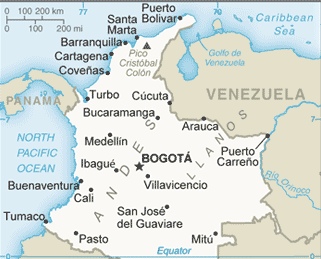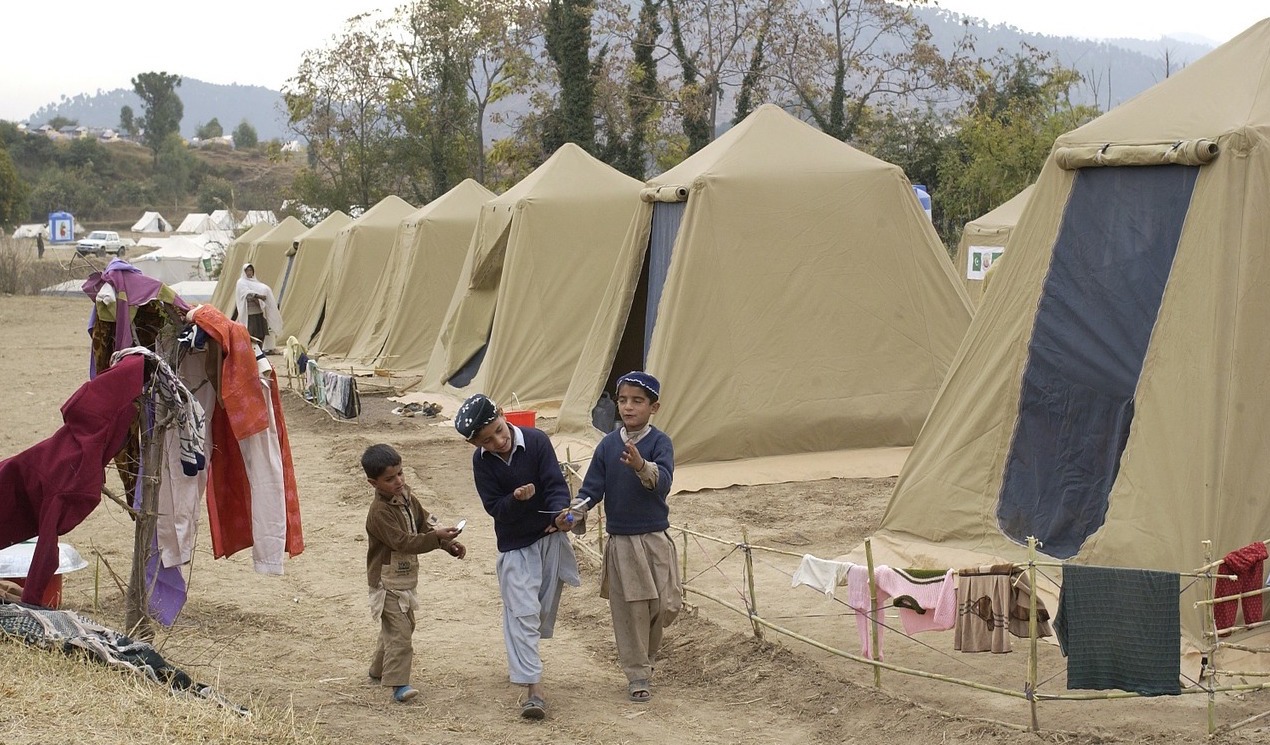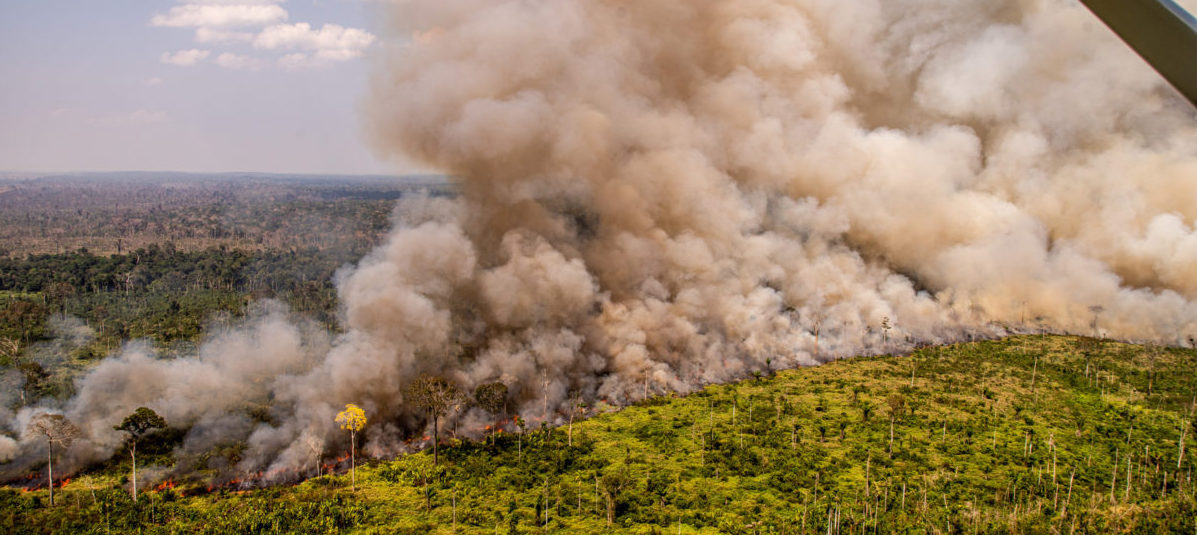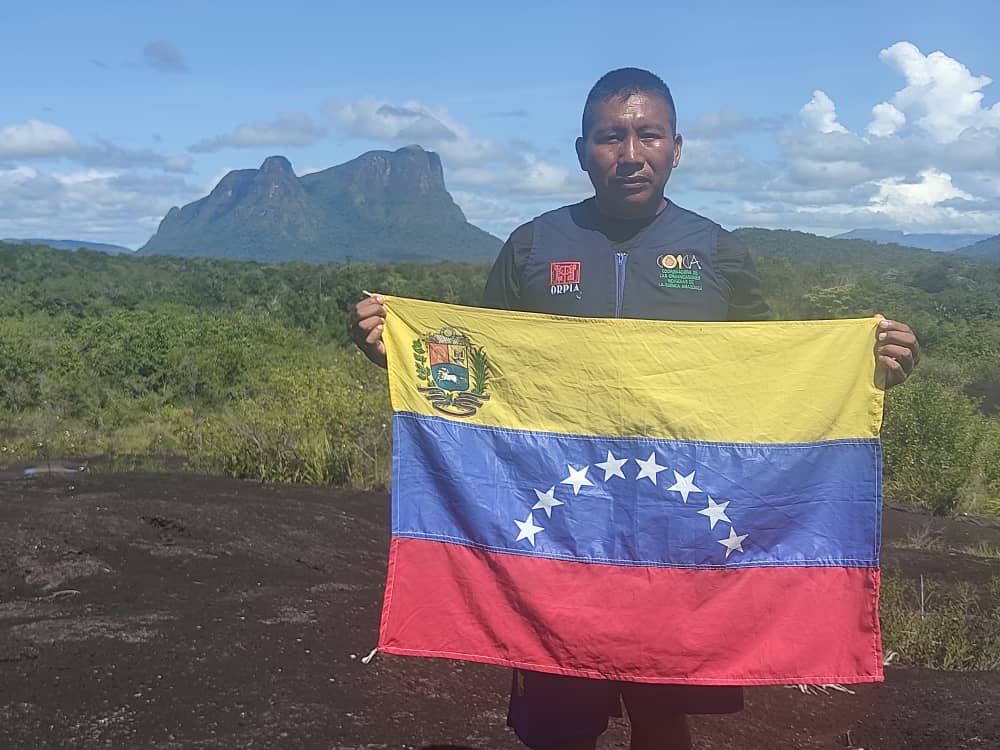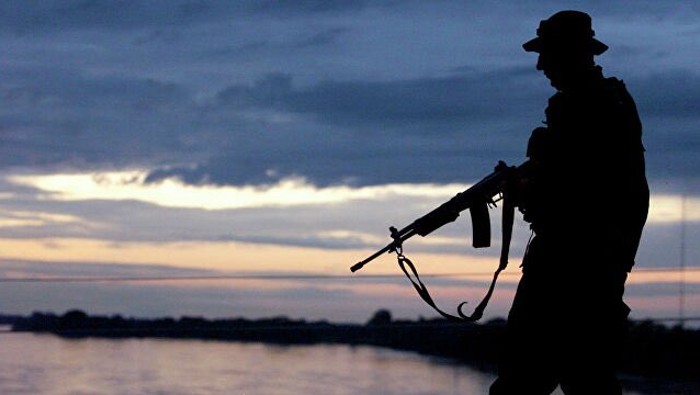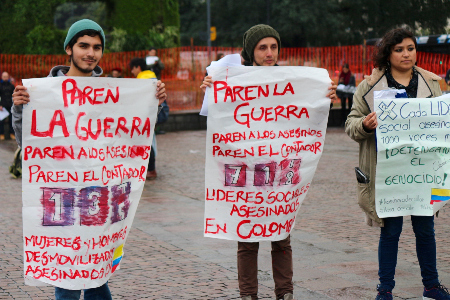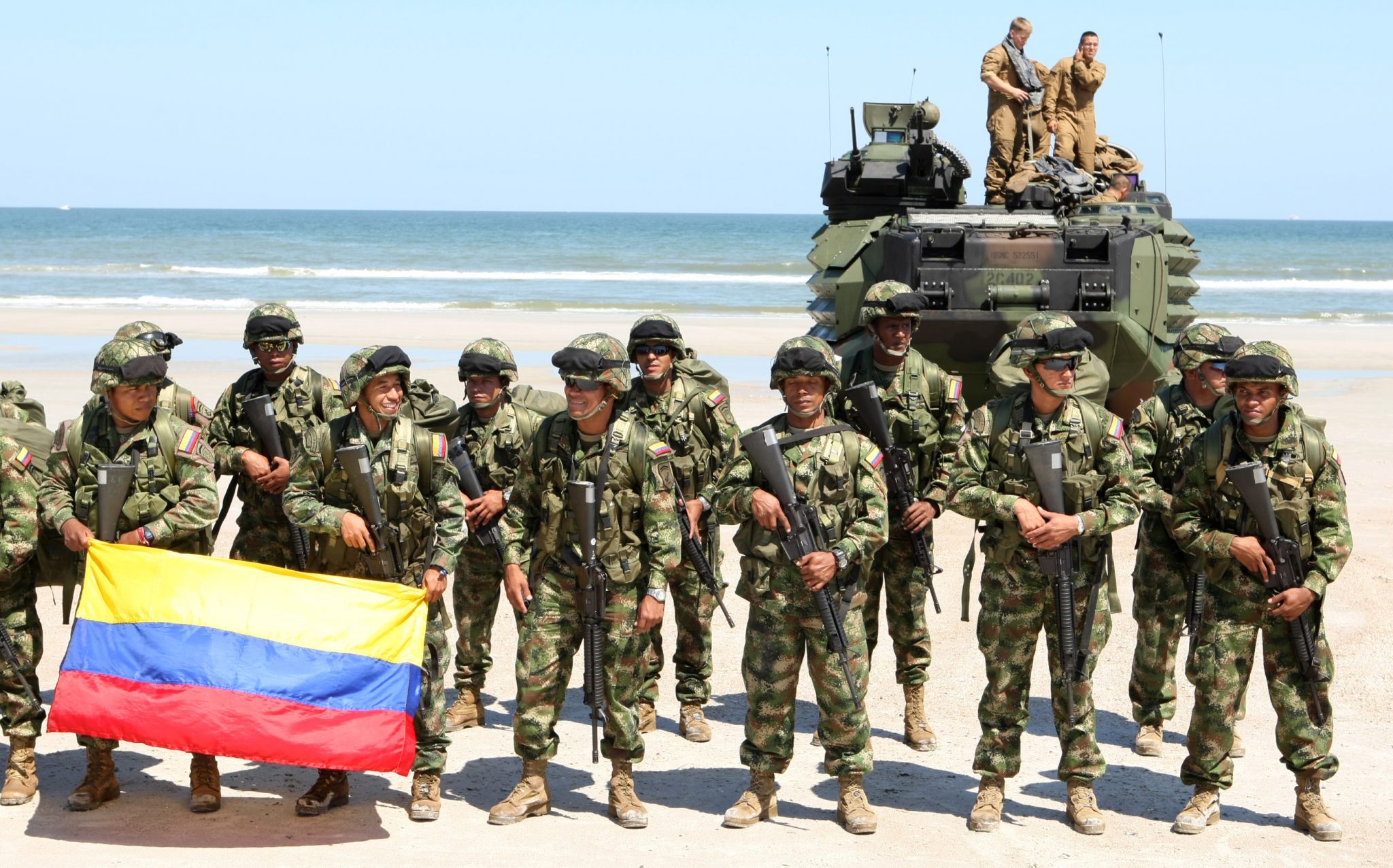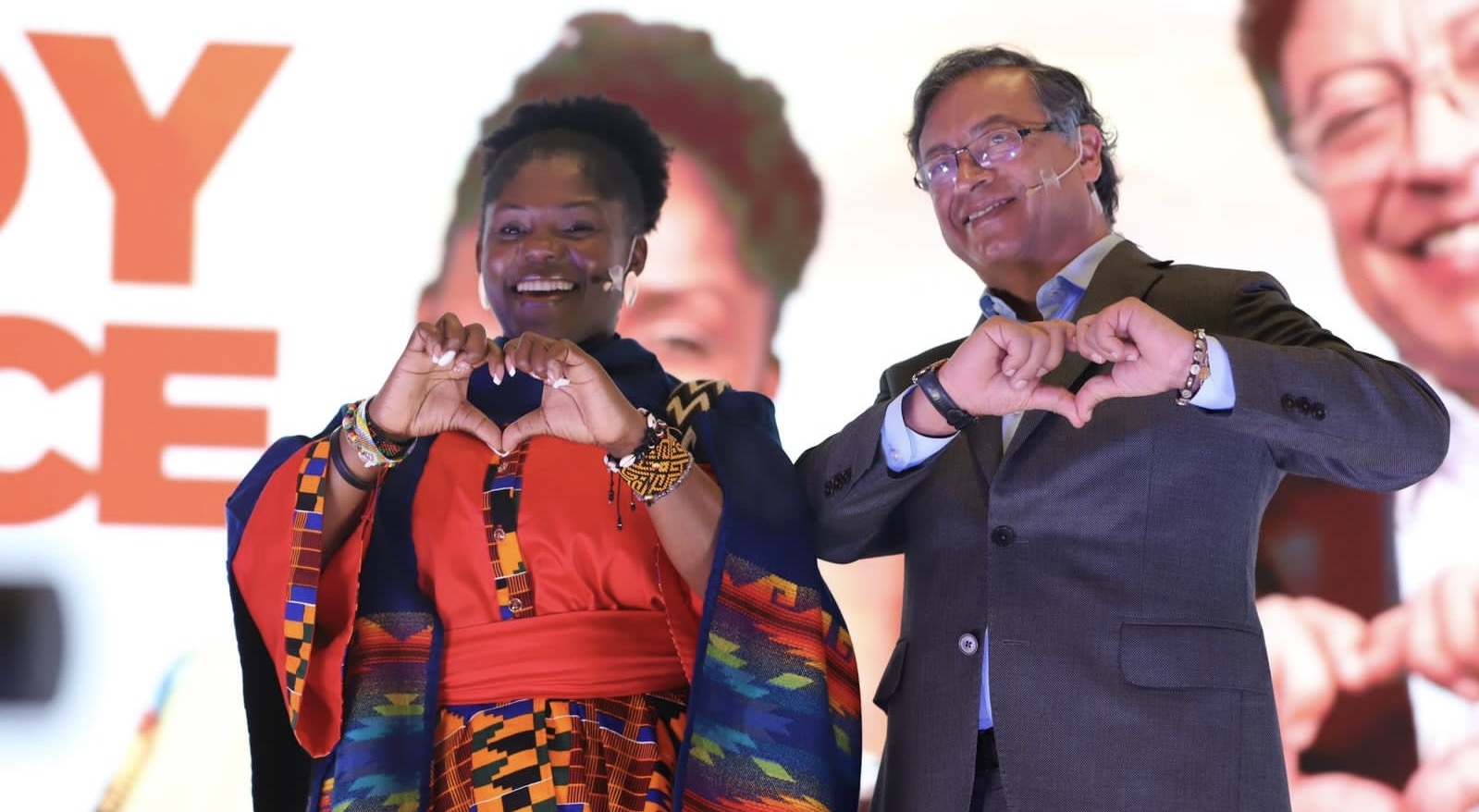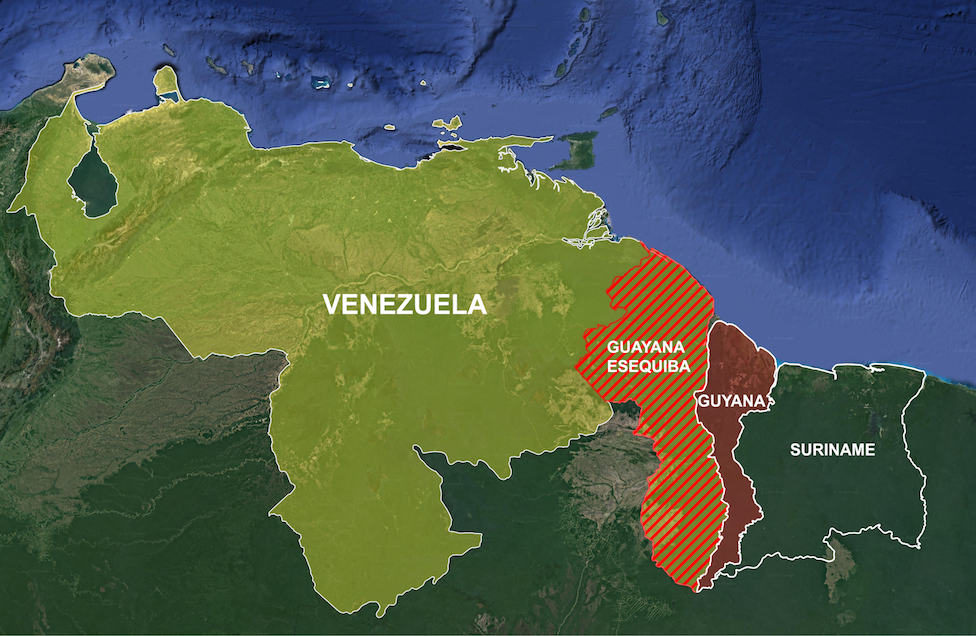
Podcast: geopolitics of the Essequibo dispute
In Episode 205 of the CounterVortex podcast, Bill Weinberg looks at the recent re-escalation and (hopefully) denouement of the dispute over Esequibo—an oil-rich territory controlled by Guyana and claimed by Venezuela. Ironically, this claim was first asserted by the conservative, anti-communist Venezuela of the 1960s to help destabilize the anti-imperialist Guyana of Cheddi Jagan. Today, the left-populist but increasingly nationalistic regime of Nicolás Maduro even entertains hubristic claims to sovereignty over Venezuela’s other much larger neighbor, Colombia. But this revanchism appears to mask the fact that “revolutionary” Venezuela largely remains a petro-state with a rentier economy, vulnerable to drops in the global oil price, even if Chinese corporate exploiters have been replacing gringo ones. With the recent easing of sanctions, US giants like Chevron have even returned to Venezuela—while the extractivist model results in indigenous resistance. Contrary to the dogmas of left and right alike, the real root of the Venezuelan crisis is that the country is insufficiently socialist. Listen on SoundCloudor via Patreon. (Map: SurinameCentral via Wikimedia Commons)



